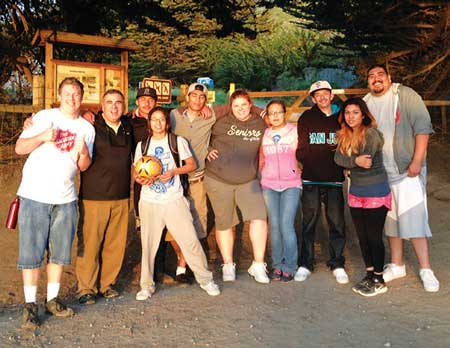West gets down to business
Bond, Bell target mission
by Sue schumann Warner –
Building on the conference theme of credibility and capability, Territorial Commander Commissioner Linda Bond spoke forcefully of the Army’s mission in her keynote address. “We are not a social agency and a Christian church—we are a Christian church who does service to all without discrimination. We make no apologies for our mission,” she said.
She spoke of the need for all, including employees, to believe in the Army’s mission, and for staff to be trained to see their part in “the big picture.”
“We must analyze the return on this investment,” Bond said. “What are the strengths and weaknesses? Are they important to the mission? Are they achieving it? We must discard goals and agendas that are not relevant. In The Salvation Army we are not good about letting things die.”
She spoke of creating a culture of change within the Army. “We need to be a Salvation Army that sees ourselves on the march, as change catalysts for the future.” Bond also noted the need for leadership to examine itself. “I’m serious about shared leadership, ownership, accountability, and team effort. The day of autocrats is dead, gone. If you are trying to run your section as an autocrat, you are a dinosaur.”
The end of all the Army’s work is to fulfill its mission, she explained. “We need to hold people accountable to do the mission. If people aren’t getting saved, serving suffering humanity, and building disciples, we aren’t doing mission. Are people coming to faith and growing?” she asked. “If not, we aren’t doing mission…our Lord is down the road, beckoning us, and says ‘We can do it’.”
Bell identifies mission benchmarks
n his address to business conference delegates at Thursday’s farewell luncheon, Lt. Col. Don Bell, chief secretary, focused on the West’s mission priorities.
Beginning with a quote from J. Hudson Taylor, founder of the China Inland Mission, he stated a foundational premise of ministry: “God’s work, done in God’s way, will never lack God’s supply.”
He then spoke of benchmarks of Salvation Army ministry that must be continually evaluated. These include:
Are souls being saved? Opportunities must be provided for decisions to be made for Christ.
Is the community being transformed by this ministry?
Are there measurable goals and objectives for this ministry that incorporate the values of the Army?
What other groups or individuals outside the Army can participate in this ministry, bringing strengths that may not need to be developed internally?
How will this ministry use the gifts and strengths God has given?
How has and how can Army administration support this local ministry opportunity?












